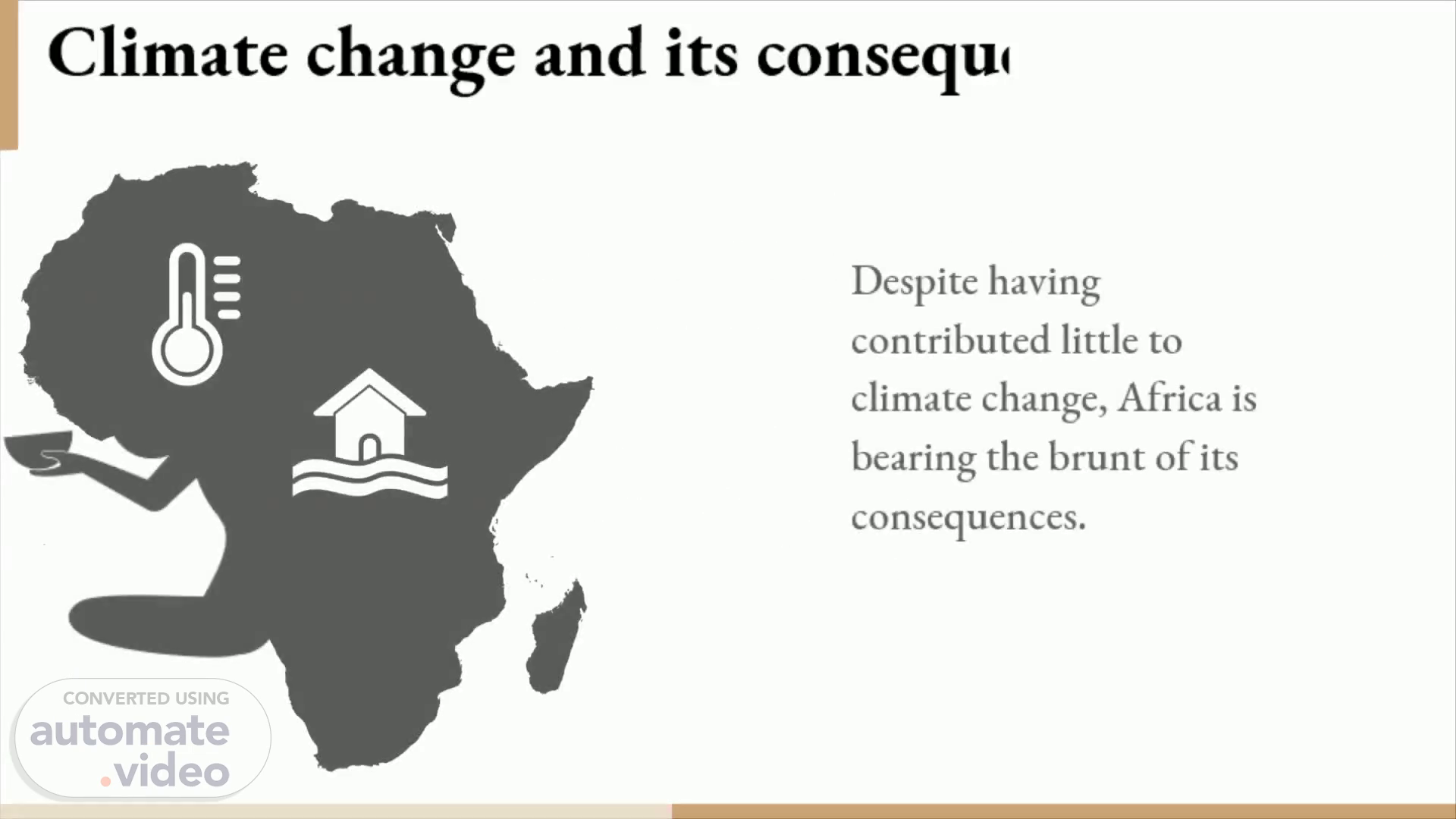
Climate Justice and Africa
Scene 1 (0s)
Climate Justice and Africa. Challenges, Opportunities and Policy/Strategy Recommendations.
Scene 2 (0s)
“ Whether driven by opportunism or a sense of moral justice, the world’s developed and emerging economies must take action at home and help Africa deliver the investments that will bring the goals of the Paris Agreement within reach.” -Ngozi Okonjo-Iweala.
Scene 3 (1s)
Despite having contributed little to climate change, Africa is bearing the brunt of its consequences..
Scene 4 (2s)
Most of the ongoing crises in Africa like, hunger, poverty, and civil wars are climate change induced..
Scene 5 (16s)
Climate Justice: Why Africa?. Map Description automatically generated.
Scene 6 (17s)
Climate justice: the broken 100-billion promise. Chart, bar chart Description automatically generated.
Scene 7 (17s)
Barriers to addressing the climate change challenge.
Scene 8 (18s)
Opportunities. Investing in green technologies gives Africa a unique opportunity to leapfrog its infrastructure and industry. Africa presents huge investment opportunities as a young economy. The international business community has an opportunity to grow the global economy and avert the looming humanitarian crises in Africa. Africa has a unique opportunity to position itself as a leader in the decarbonization discussions and strategies and as a geopolitical power..
Scene 9 (19s)
Policy and strategy recommendations. For African countries: Leverage the current opportunities for transition to reinforce Africa’s position as a reliable producer rather than a consumer of green technologies. Promote sound local and national policies that incentivise green and small businesses and promote easy access to finance. Invest in comprehensive environmental policies that promote the protection of biodiversity at the local and national levels. For wealthiest countries Political will to adapt their production and consumption models to decarbonization. Respect their financial pledges toward the most climate-change-affected countries and facilitate knowledge transfer..